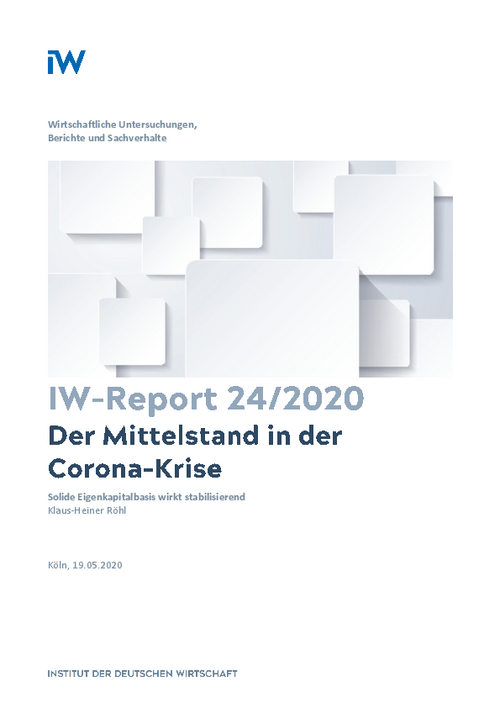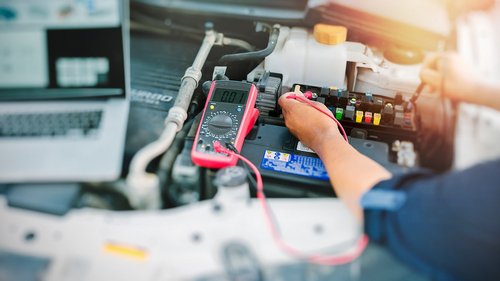Due to the strong domestic focus of the lockdown measures against the corona pandemic, small and medium-sized enterprises (SMEs) are affected to a far greater extent than in the financial and economic crisis a decade ago, and the service sector is suffering particularly badly.

Good equity capitalization stabilizes small and medium enterprises during the Corona-crisis
IW-Report

Due to the strong domestic focus of the lockdown measures against the corona pandemic, small and medium-sized enterprises (SMEs) are affected to a far greater extent than in the financial and economic crisis a decade ago, and the service sector is suffering particularly badly.
This is leading to severe revenue shortfalls at around 2.2 million companies – more than half of the German total – and has so far resulted in short-time work notices for 10 million employees. A prolonged lockdown or persistent loss of sales even after the restrictions have been relaxed, as is currently being done step by step by the federal states, can have existentially threatening consequences for many companies due to the associated withdrawal of liquidity. Dept-based liquidity assistance from the government may provide bridging aid, but it does not prevent companies from becoming overindebted as capital is depleted. However, subsidies are only granted by the federal government for micro-enterprises with up to 10 employees and only in small amounts up to a maximum of 15,000 euros.
In this critical situation, the good equity base that SMEs have built up over the past 20 years has a stabilising effect. Small companies and the German „Mittelstand”, which make up the majority of total companies, were able to improve their balance sheet structure the most. Although the solid capitalisation of German SMEs will not be able to prevent an increase in the number of insolvencies as a result of the crisis, on average it will act as a safeguard for their existence.

Klaus-Heiner Röhl: Der Mittelstand in der Corona-Krise – Solide Eigenkapitalbasis wirkt stabilisierend
IW-Report

More on the topic

How SMEs and start-ups cooperate in the automotive industry
Cooperation between established companies and start-ups offers expanded opportunities to innovate and drive the digitalization of the economy.
IW
Do Family Businesses Shape Political Voting Behaviour in Germany?
In recent years family businesses have become an object of research in their own right. Indeed, it has been shown that, far from developing less dynamically than other firms, as once assumed, family businesses actually outperform their peers.
IW